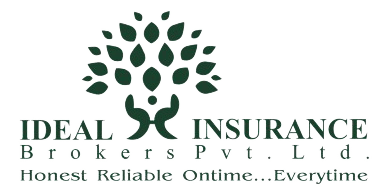Liabilities can be insured!
Purpose
Employer shall be liable before the Court of Law to pay compensation, in accordance with the provisions of Workmen Compensation Act, 1923, for personal injury or death or disease contracted specified therein as an occupational disease peculiar to that employment in Part A Schedule III of Workmen Compensation Act 1923, caused to a workman by accident arising out of and in the course of employment.
‘Personal injury’ under the Act means physiological injury. It may be external, or it can be internal also.
Workmen:
All employees working for the employer/ insured. In case of contract labour the liability of the principal is absolute though he may not be the actual employer. e.g For The Security Gaurds provided by a security agency, the liability under WC Act also falls on the Principal.
Wages:
For purpose of calculating any claim the monthly wage taken into account are the actual wages subject to maximum of Rs.4,000/. Wages includes all allowances and cost of perks.
Legal Liability may arise due to:
- Breach of, any of the, statutory regulations provided for ensuring safety to workers inside the factory premises.
- Negligence of co-employees.
- Injury or Accidental Injury to workers while performing their duties
Policy covers is subject to
- Workmen’s Compensation Act, 1923
- Fatal Accidents Act, 1855
- Any other Common Law
Employer is liable to pay compensation for:
- Death
- Permanent total disablement
- Permanent partial disablement
- Temporary disablement whether total or partial
The Employer need not pay compensation – in respect of any injury caused by an accident which is directly attributable to
- The workman having been at the time under the influence of drink or drugs.
Or - Willful disobedience by the workman of orders and rules expressly given to secure the safety of the workmen
Or - Willful removal or disregard by the workman of any safety devices provided for the safety of workmen
In cases of death or permanent Total Disablement of a workman, the above defences are not available to Employer.
If any disease is prescribed in the Act as “Occupational Disease”, the illness is deemed to be an injury. If the Employer defends the Claim, such expenses are also payable.
Extension of cover
Policy may be extended to cover Medical expenses incurred by the employer by payment of additional premium as per Workmen Compensation policy.
The Company shall not be liable under the policy in respect of:
- Any injury by accident or disease directly attributable to war invasion act of foreign enemy hostilities (whether war be declared or not) civil war, mutiny, insurrection, rebellion, revolution or military or usurped power.
- Liability towards employees of the contractor.
- Liability of the insured which attaches by virtue of an agreement but which would not have attached in the absence of such agreement.
- Sum which the Insured would have been entitled to recover from any party but for an agreement between the Insured and such party.
When does a claim arise under WC ACT:
The Claim under WC Act arises in case of any injury (fatal & non-fatal) / decease arising out of and in course of his employment.
IN case of an accident invoking liability under WC ACT the employer/insured needs to take following steps:
- Inform the incident to WC Commissioner in whose jurisdiction the accident occurs.
- Inform Police of the incident.
- Inform us of the accident.
Claims Procedure
For preferring a claim he needs to submit us the following Documents to enable us to proceed with investigation of the case:
- Claim Form duly filled and signed (A specimen blank copy enclosed)
- Submit proof of employee/ Employer relationship.
- Police FIR/ PMR (In case of fatal accidents)
- Internal/ Dept Enquiry report.
- Report from Labour Dept.
- Copy of letter informing WC Commissioner of Accident.
- Medical record / reports showing nature & extent of Disability in case of Permanent Disability cases.
- Medical records/ reports evidencing the medical expenses and period of temporary disability.
- Leave record of the employee in case of WC Claim.
The investigator is appointed to verify the records wage Bills/ Employment records and any shortfall in premium (i.e under-declaration of Wage Bill or No. of employees) till date plus a reasonable premium for future needs to be necessarily deposited before the claim is settled. In case of glaring difference between the initial declaration and the actual figures are detected, the claim may even be prejudiced.
In the event of claim, the Insured must inform the insurer in writing & request for a Claim Form
In Case of death of employee
- Claim form
- Confirmation that the accident has happened in the course of employment
- Age proof for the deceased employee
- Complete Medical Papers
- Post Mortem Certificate
- Copy of Order of the WC Commissioner for the award passed
- Statement of Wages
- Muster Roll of the employees
Proof of payment In case of Permanent Total Disablement and Permanent Partial Disablement
- Claim form
- Confirmation that the accident has happened in the course of employment
- Age proof for the disabled employee
- Complete Medical Papers
- Disability Certificate of the attending doctor
- Copy of Order of the WC Commissioner for the award passed
- Statement of Wages
- Muster Roll of the employee
- Proof for Payment.
In case of death and Permanent disablement claims, the claim would be processed only after the full compensation is deposited before the Commissioner
In case of Temporary Total Disablement
- Claim form
- Confirmation that the accident has happened in the course of employment
- Complete Medical Papers
- Fitness Certificate from the attending doctor
- Statement of Wages
- Muster Roll of the employee
- Complete list of workers employed as on Date of Accident under all categories
- The Company reserves the right for appointing of an investigator for the claim.
- On receipt of the above documents by the Insured, the claim will be processed.
- Earnings, Wages and Salaries
Shall mean the employees total remuneration paid or fallen due for payment including overtime, value of board and/or lodging, housing accommodation bonuses and all other perquisite privileges or benefits in kind or money, received by the employees from the employer in connection with their employment.
Or
As specified under Workmen Compensation Act, 1923.
Or
The Sum insured available under the policy. Whichever is less.
Quantum of Claim:
The amount of claim payable under WC Policy is strictly governed by the WC ACT and depends upon two factors:
- Monthly wages of the employee.
- Age of the Employee. Based upon the age the WC ACT specifies a Factor Multiplier Table which is appended with this note.
When Death results from the injury:
An amount equal to 50% of the monthly wages of the deceased workman multiplied by the relevant factor.
Or
An amount of Rupees eighty thousand whichever is more.
When permanent total Disablement results from the Injury:
An amount equal to 60% of the monthly wages of the injured workman multiplied by the relevant factor.
Or
An amount of Rupees Ninety Thousand whichever is more.
When permanent Partial Disablement results from the injury:
In case of an injury specified in the ACT, such percentage of the compensation which would have been payable in case of Permanent Total Disablement as is specified therein as being the percentage of the loss of earning capacity caused by that injury.
And
In case the injury is not specified in ACT, such percentage of the compensation payable in case of permanent total disability as is proportionate to the loss of earning capacity(as assessed by the qualified medical practitioner) permanently caused by the injury.
(where more injuries than one are caused by the same accident, the amount of compensation under this head shall be aggregate but not so in any case as to exceed the amount which would have been payable if permanent total disablement had resulted from the injuries.)
Where Temporary Disablement whether total or partial results from the Injury:
A half monthly payment of the sum equivalent to 25% of the monthly wages of the workmen, if the disablement is for more than 3days. This will continue during the period of disablement or 5yrs. whichever is shorter.
THE WC Claim needs to be deposited necessarily with WC Commissioner of the Area, unless order to the contrary are obtained from him. The discharge of WC Commissioner is sufficient discharge for us.
Most industrial and non-industrial units face the risk of becoming legally liable to pay damages to third parties as a result of accidental death of / bodily injury to third parties or loss or damage to the property belonging to a third party due to their operations.
Public Liability Insurance covers the legal liability of industrial and non-industrial establishments arising out of such events. The policy covers businesses against:
- Legal liability of the insured towards damages to the third party in respect of accidental death, bodily injury or loss of or damage to property.
- Legal costs and expenses incurred by the Insured with prior consent of the Company.
The policy provides for the following extensions:
- Pollution Cover: Liability towards pollution risks in connection with pollution or contamination of atmosphere water or land or other tangible property.
- Transportation Risk: Transportation extension for covering liability arising out of transportation of hazardous material or substance
- Technical Collaborators’ Liability: Collaborators liability extension to cover liability arising out of accidents occurring attributable to the defects in the designs or processes supplied by the technical collaborators.
- Effluents Risk: Extension to cover Carriage of effluents outside the premises
- Act of God perils: Extension to cover liability arising out act of god perils depending upon the earthquake zone as per the fire insurance tariff in which the risk is situated.
Indemnity Limit:
- Any One Accident (AOA): It is the limit of liability under the policy per accident.
-
Any One Year (AOY): It is the maximum limit of liability under the policy for any one year and is expressed in ratios in relation to AOA
Exclusion:
The policy does not cover liability arising out of
- earthquake, earth-tremor, volcanic eruption, flood, storm, tempest, typhoon, hurricanes, tornado, cyclone or other similar convulsions of nature and atmospheric disturbance unless AOG perils add on has been specifically taken
- deliberate, willful or intentional non-compliance of any Statutory provision or disregard of the insured’s technical or administrative management
- loss of pure financial nature such as loss of goodwill, loss of market etc
- all personal injuries such as libel slander, false arrest, wrongful eviction/ detention, defamation etc and mental injury, anguish or shock resulting there from
- Infringement of plans, copyright, patent, trade name, trademark, registered design.
- fines, penalties, punitive or exemplary damages or any other damages
- war group nuclear group and Act of God of perils
- transportation of materials and dangerous substances unless specifically covered
- Ownership, possession or use by or on behalf of the insured of any aircraft, watercraft or hovercraft.
- Injury to any person under a contract of employment or apprenticeship with the insured when such injury arises out of the execution of such contract.
- Arising under the Public Liability Insurance act or any other statute that may come into force after the issue of this policy.
- Assumed by the insured by any agreement and which would not have attached in the absence of such agreement.
Directors & Officers Liability is the liability of corporate board members and officers arising out of their actions pertaining to their management duties of the company.
Directors’ & Officers’ Liability Insurance insures the personal assets of directors and officers from lawsuits arising out of their capacity as directors or officers of the company.
Some of the heads of officer liability – allegations and offences that can invite legal action are:
- Breach of fiduciary duties
- Inaccurate financial statements
- Mismanaging corporate assets
- Fraud and dishonesty
- Misuse of insider information
- Environmental and pollution claims
- Product liability
- Conflicts of interest
- Wrongful dismissal of employees
- Breach of health and safety standards
- Anti-trust violations
- Sexual discrimination and harassment; disability discrimination
- Corporate Manslaughter – management failures that result in death
- Irregularities in Securities issues
- Tax evasion, tax liabilities and penalties
- Unauthorized or imprudent loans and investments
- mismanaging mergers and takeovers
- Insolvency actions
- Breach of minority shareholder rights
Litigation can come from:
- Shareholders and other investors
- Creditors
- Lenders
- Customers
- Statutory Authorities
- Employees
- Competitors
The policy pays for the legal expenses and the court awards against the directors and officers.
Errors & Omissions Insurance is a professional liability insurance that protects companies and individuals against claims made by clients for inadequate work or negligent actions.
An error or omission, a mistake, which causes financial harm to another, can occur on almost any transaction in any profession. This type of insurance helps to protect a professional, an individual or a company, from bearing the full cost of defense for lawsuits relating to an error or omission in providing covered Professional Services.
The policy covers businesses against:
- Legal liability of the insured towards damages to customers with respect to financial losses incurred by them due to negligence of the insured
- Legal costs and expenses incurred by the Insured.
Limit of Liability:
The total liability of the insurer has two limits: Per Claim Limit called AOA limit (Any One Accident) and Per Annum Limit called AOY Limit (Any One Year)
Major Exclusions are:
- Pure financial losses and insolvency
- Libel, slander & defamation
- Infringement of patent, copyright, trademark, IPR
- Financial Guarantee & Insolvency
- Damage to own property
- Contractual Liability
- Punitive & Exemplary damages
- Political risks
- War, civil war, terrorism & sabotage
- Prior acts and pending litigation
What is a CGL policy?
CGL covers Third party Liabilities arising from various business exposures such as those arising from Premises, Products, Advertising and Personal injury. E.g. injury sustained by a potential customer whilst at the premises of the insured. The injury would be due to a fall on a freshly mopped floor, slipping down the stairs or due to a fire incident in the premises.
Why is Commercial General Liability (CGL) policy required?
Consumers and customers in the upper income strata are increasing getting aware of their legal rights and are exercising them without qualms.
In this scenario it becomes important for large corporations and big brands to protect themselves from alleged and real claims with can cause financial outgo.
What does the policy cover?
The policy is split up into 3 coverages as follows:
- Coverage A – This covers the damages because of bodily injury and property damage claims that may be made on the insured.
- Coverage B – Under this section, the insurance company pays those sums that the Insured becomes legally obligated to pay because of Personal and Advertising injury liability.
- Coverage C – extends to Medical Payments wherein the insurance company agrees to pay medical expenses upto a particular limit for bodily injury caused by an accident on the premises owned or rented by the insured or because of his operations. These payments are made regardless of fault.
The policy covers businesses against:
- Legal liability of the insured towards damages to the third party in respect of accidental death, bodily injury or loss of or damage to property.
- Legal costs and expenses incurred by the Insured with prior consent of the Company.
Limit of Liability:
The total liability of the insurer has two limits: Per Claim Limit called AOA limit (Any One Accident) and Per Annum Limit called AOY Limit (Any One Year)
Major Exclusions are:
- Pure financial losses and insolvency
- Product Guarantees
- Damage to own property
- Contractual Liability
- Punitive & Exemplary damages
- Political risks
- War, civil war, terrorism & sabotage
- Prior acts and pending litigation
Salient Features
- The policy pays for damages, that the insured is legally liable to pay in consequence of accidental death/injury or disease to third parties including damage to third party property due to any defect in the products manufactured.
Additional Covers
- Vendors’ Liability extension
- Technical collaborators liability
- Products manufactured by sub-contractors/licensed manufacturers on their own brand name can also be covered under the same policy.
- Recall
Benefits
- Claims arising out of accidents during the policy period due to defects in the products covered by the policy are payable.
- The policy also covers injury to third party and pollution liability on account of products covered.
- Indemnity is extended to officials of the insured in their business capacity.
- Officers, committees and members of insured’s welfare associations personal representatives of the estate.
- All costs, fees and expenses incurred in investigation, defense and settlement of claim made against the insured, cost of representation at any inquiry or other proceedings in respect of matters having direct relevance to the claim made against the insured are covered by the policy subject to the overall limits stated in the policy.
Premium
- Premium is charged on the limit of indemnity and depends on the ratio of any one accident to any one year.
- Additional premium for exports is charged based on the total exports turnover to each country.
- All policies are subject to a minimum excess 0.5% of limit indemnity per any one accident (except for exports to USA/Canada which have double these limits).
- All extensions carry additional rates.
- Rates are lower if higher excess opted.
Requirements
- Duly filled in proposal giving full details of business operations, the nature of goods, turnover, product specifications, claims history, the limits of indemnity for cover opted.
It is a part of any commercial contract that the seller gives to the buyer what the seller has represented that it will provide. Hence while selling a product it is implicitly agreed that the product will perform the function for which it has been bought by a buyer, without problem and to the buyers satisfaction as reasonably understood.
If such a product does perform the stated function, threatens the buyers life or property or is does not perform upto the reasonably expected efficiency the seller should replace or repair it. Product recall is part of such an implicit guarantee given by the seller.
Product recall is an expensive affair and companies end up spending millions of dollars, but it is an integral part of good business ethics and management of corporate image. A product recall policy covers the expenses incurred a corporate to manage the recall and the cost of replacing / repairing the defective parts. The policy can be taken to cover recall internationally or in a particular region.
Premium is linked to the global experience the insurers have had with:
- The product category. E.g. auto recall policy is more expensive compared to a refrigerator recall policy
- The company. Previous case of recall increase the premium
- The region. Litigious regions tend to have higher premium. E.g. companies operating in USA have to pay more that companies operating in India
- The cost of recall. E.g. Recalling cars is more expensive compared to recall toasters.
Recalling company will have to setup a recall system that entails the following.
- Track buyers if possible and send communication to them. Else issue broad media based notifications
- Train local dealers to replace / repairs. If not possible then create a system whereby local dealer accept the defective product and send it to a central repair facility
- Send an inventory of parts to the local dealers if they are going to repair.
- Create a system to collect defective parts
- Create a system to monitor and destroy defective parts
- Create an audit system to monitor the percentage of replacements that have taken place
- Create a system to manage residua liability that can arise from customers who have not got the defective part repaired inspite of reminders.
Connect with us and FREE recommendation!
Mutual Fund
Insurance
More Investments
SIP





